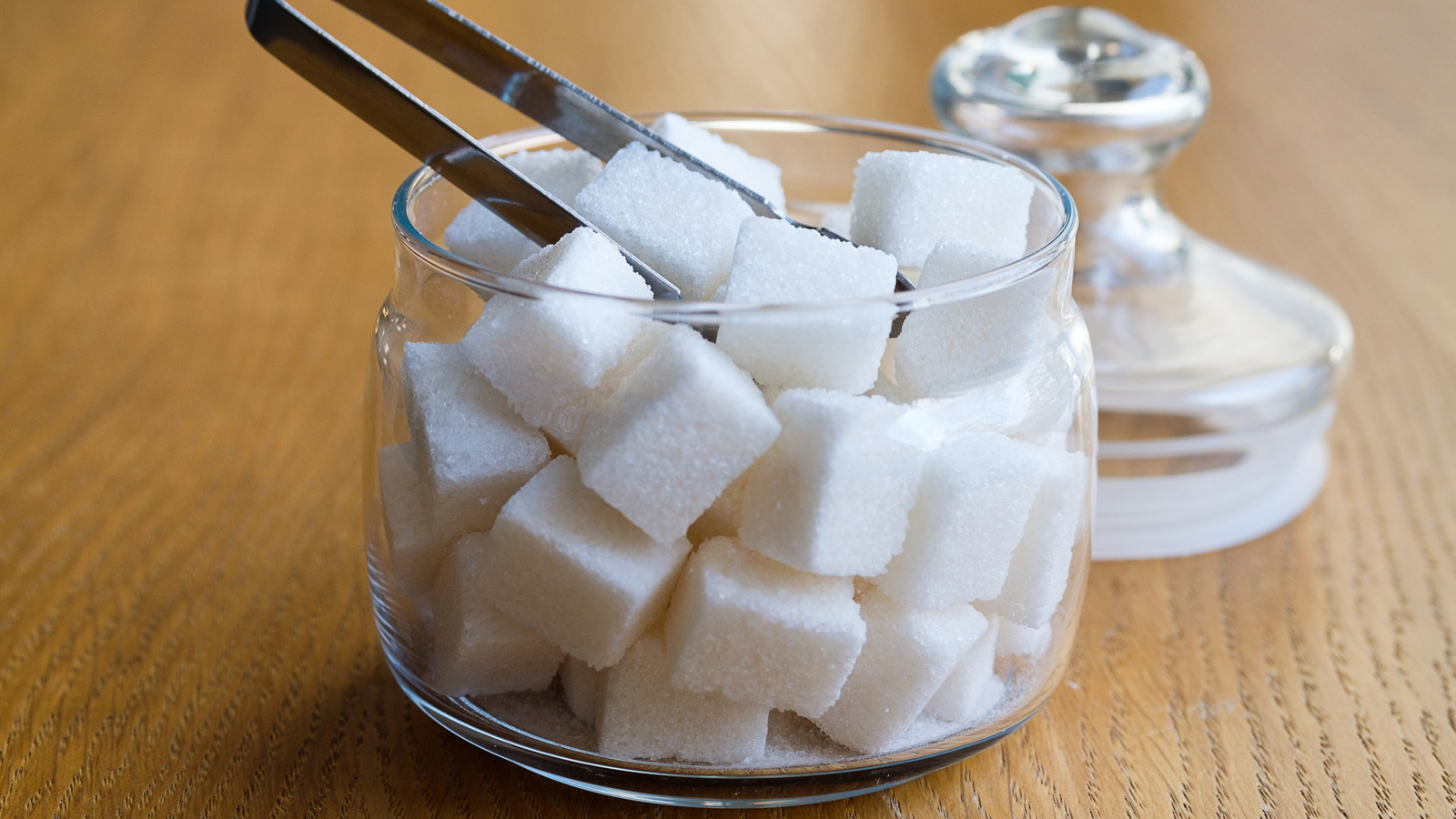A touch of added sweetness can make a lot of dishes pop, but there's more to the world of sweeteners than just plain table sugar. One versatile replacement in particular appeals to people trying to watch their sugar and carbohydrate intake: maltitol. Maltitol is one of the best alternative sweeteners available.
It and other sugar alcohols can be found in nature, though it's technically neither sugar nor alcohol. It has a slightly less sweet taste than regular sugar, making maltitol an adequate replacement in sweetened drinks and baked goods, among other things. Like sugar, maltitol is also a carbohydrate, but it has about half the calories of sugar.

But that doesn't mean it's a miracle sweetener for people with certain chronic conditions, as excess maltitol consumption can also cause problems. How is maltitol used? Like sugar, maltitol is commercially available in liquid, powdered, and granulated forms. Maltitol syrup is a good substitute for simple syrup in drinks like coffee, tea, and cocktails.
Powdered and granulated maltitol can generally be used instead of sugar when baking, with some caveats. Its slightly reduced sweetness may call for recipe adjustments, plus it tends to retain moisture and prevent browning. Maltitol may not have the name recognition of sugar, but it's a fairly common ingredient.
It's often found in the best sugar-free candies and other sweetened foods. It can be a good sugar replacement for people with diabetes, however it's still a carbohydrate, so excess consumption can affect blood glucose levels. Unfortunately, people with IBS should avoid foods with maltitol , which can upset their stomachs.
Maltitol is also common in certain non-food products that could use a touch of sweetness, like toothpaste, mouthwash, and oral medications such as syrups and chewable gummies. Using regular sugar to increase palatability would also promote tooth decay, whereas maltitol does not break down into enamel-erasing acids. What is regular sugar? Like maltitol and other sugar alcohols, sugar is also naturally found in plants, where it's often referred to by the chemical name "sucrose.
" But the sweet, granulated white powder in pantries is processed from either sugar beets or the sugar cane plant, as are other forms of sugar, including liquid syrups, powders, and crystals. Sugar's excellent baking properties and delicious flavor make it a go-to choice for almost anything that should taste sweet. But excess consumption of sugar can come easily and cause or contribute to several serious health conditions like high blood pressure, diabetes, and chronic inflammation.
As a result, the market for sugar substitutes is strong, both for people with these conditions and those seeking to avoid such chronic illnesses..
Food

What, Exactly, Is Maltitol And How Does It Compare To Regular Sugar?

Sugar substitutes abound, each with its own perks and drawbacks. When it comes to maltitol, what exactly is it, and how does it compare to regular sugar?














